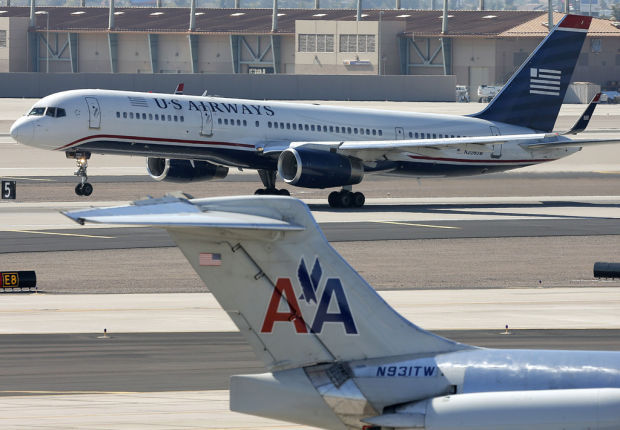PHOENIX — The state’s high court won’t force a phone company to pay for $2 million in losses suffered by US Airways because of a mistake that shut down the airline’s reservations systems and affected 1,360 flights nationwide.
In a brief order Wednesday, the Supreme Court upheld the findings of the state Court of Appeals that the only thing Qwest Communications — now Century Link — owes to the airline is the cost of services it did not get. And that, the court concluded, is $586.
The court action affects more than US Airways, now merged with American Airlines. It essentially sets a legal precedent that could preclude other businesses and individuals from recovering their utility-caused losses.
At issue is a 2009 project to construct carports in a parking lot next to the airline’s data center in Tempe.
The company hired Arizona Blue Stake, a centralized operation to find underground utilities, to locate and mark underground cables and power lines. Blue Stake, in turn, notified Qwest, as owner of cable in the area; Qwest then hired ELM Locating & Utility Services to find the cable.
According to court records, ELM could not find the cable because Qwest’s maps were inaccurate.
But instead of notifying the phone company, ELM marked the ground with a “no conflict” notation, giving the construction company the go-ahead to start digging. It did — and promptly severed the Qwest cable carrying data from other telecommunications providers to the airline’s data center for four hours.
Maricopa County Superior Court Judge Arthur Anderson found that Qwest had an obligation to the airline not to sever the cable. But he said the damages are limited to that $586 in accordance with the company’s publicly filed “tariffs,” essentially a list of charges, rules, regulations and practices.
The airline appealed, saying the phone company and ELM should be held liable for the damages they cause.
But in a unanimous opinion — the one the Supreme Court refused to disturb Wednesday — the state Court of Appeals pointed out that Qwest’s tariffs specifically limited its liability for damages to situations of “willful misconduct.”
Potentially more significant, the appellate judges rejected the contention by the airline that the phone company cannot legally limit its own liability.
Attorneys for the airline noted the Arizona Constitution says “the right of action to recover damages for injuries shall never be abrogated, and the amount recovered shall not be subject to any statutory limitation.”
But appellate Judge Maurice Portley said that provision protects only a right to sue that existed at the time the constitution was adopted in 1912.
“Although negligence actions are part of Arizona’s common law, a negligence action against a public utility for service interruption or other economic losses is not,” he wrote. In fact, Portley said the reverse is true, citing an 1873 decision by the U.S. Supreme Court that concluded a telegraph company could not be liable for any damages that result from a mistake in transmission.





